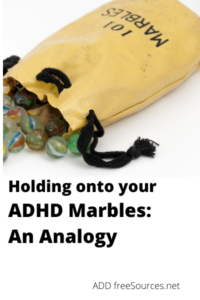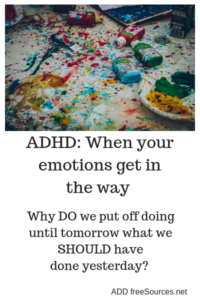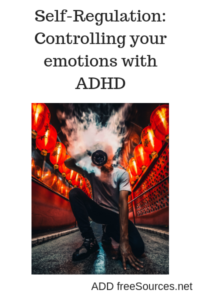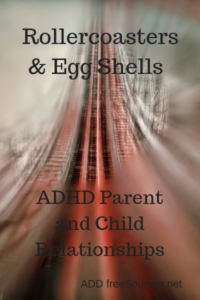 Radical Acceptance Meets Executive Functions
Radical Acceptance Meets Executive Functions
Welcome to March.
Somehow I missed the February newsletter altogether. I’ve been very busy – especially with worrying, researching, and watching the news about the Coronavirus, doing ANYTHING else “more important” or more interesting, and otherwise procrastinating. I’ve even started a few times but didn’t manage to pull my thoughts together.
Unfortunately, most of us with ADHD have to hijack the emotional part of the brain to get started. Just a few ways that we “motivate” ourselves are Anxiety, Avoidance, Procrastination, Anger, Shame, and Self-loathing. Tamara Rosier writes more about why these are so harmful in “5 Perfectly Awful Ways to Motivate the ADHD Brain“.
“Many of us with attention deficit disorder (ADHD or ADD) have less reliable access to our prefrontal cortex (PFC) than do neurotypical people,” she says. “Life’s details are (typically) managed in the PFC. It is a calm, rational butler, directing behavior in a Siri-toned voice: “Sir, your keys are on the table.” Or, “Madam, you must leave now if you want to arrive on time.”
“Those of us with ADHD can’t rely on our PFC butler for planning, short-term memory, working memory, decision-making, and impulse management. (Also known as Executive function) So we go to our emotional centers, in the limbic system, to remember things, make decisions, and to motivate ourselves. We use our emotions to help us to think, remember, plan, and act.”
I know. I’ve been doing it myself all my life. The problem is that this DOES work. Well, Sometimes. Eventually. Maybe. But just as often, it really does NOT work, not at all. And using our emotions to fuel action comes at a very high cost to our psychological well-being. This month, ruminating over NOT writing the newsletter was just one of many tasks that I gave myself a hard time about not getting done. Honestly, I’m so tired of beating myself up.
I also know that I not alone in feeling this shame and self-loathing. Psychotherapists Sari Solden, MS, and Dr. Michelle Dougher Frank. write about coming to terms with this negative image of self in A Radical Guide for Women with ADHD: Embrace Neurodiversity, Live Boldly, and Break Through Barriers. ($10.50 on Kindle, $16 in paperback)
Although their focus is on women, Solden and Frank’s ideas apply to everyone with ADHD or other neurological disorders – men, women, and children. In an article for Psychology Today, Radical Acceptance Meets Executive Function, they advocate a shift in treating ADHD from a medical perspective to a person-centered point of view. (Link works)
They explain, that, “This approach measures the success of these woman’s lives not by the decrease in their symptoms (which is helpful) but instead by how they can continue to lead fulfilling authentic lives; the goal is not just getting over their struggles but developing a healthy relationship to them.”
Mind you, their advice to therapists includes using many coaching techniques for ADHD such as identifying individual strengths and interests as well as problem areas where their ability to cope falls apart. They recommend delegation, organizational tactics for the physical environment, as well as time management skills to address executive function difficulties. But the focus is on restoring the individual to wholeness through connection, meaningful purpose, and acceptance. As Solden and Frank remind us, “Disowning oneself is far more destructive than living with the chronic disorganization and executive functioning issues of ADHD.”
In other words, all the tricks and “hacks” for living with ADHD that we have put into place, no matter how successful we are in “getting things done,” mean little if you can’t be happy with who you are. Stop trying to “fix” yourself. That doesn’t mean stopping the strategies that are helping you, but that we need to separate, to untangle, our “brain-based challenges from our core sense of self.” This video helps explain. Helping Women (and Men)with ADHD Live Boldly
We can choose how we react to our challenges. Our guest author, Meagan from Happy Hyper Shiny, offers us a few ideas in ADHD Choices: Things I CAN do!
- “I CAN take one step at a time. Moving forward and making the smallest step is progress towards success.
- I can, I can, I can….
- The point is that even though my brain doesn’t allow me to do normal things in a normal way, I can try and find a way to do them so I am successful. My brain isn’t “normal”. I can’t expect it to work that way.”
It’s an ongoing process. You need to separate your ADHD from yourself. You are NOT the disorder. Your symptoms cause certain behaviors, like being late or missing deadlines, but they don’t define you. We don’t have to struggle so hard. Developing self-knowledge is the first step. Find tools for discovery in the collection of resources in Self-advocacy for ADHD: Know yourself.
Helping to define your “purpose” in life is a great way to inspire action. Partly due to our feelings of shame and inadequacy, we tend to believe that something that comes easily to us has little value. But the ADHD brain “lights up” when we are interested in something and many of our struggles fade away when positively engaged.
These 9 Questions to Ask Yourself to Help you Find Your Passion can be another starting point in learning to value your strengths rather than dwelling on areas where you struggle.
- “What is something that you are really good at doing? Something that comes naturally to you? Something that you do with hardly any effort or difficulty?
- What is one thing that when you do it, you forget about the time, about eating, about using the bathroom, or about any of your responsibilities? Meaning, you are so focused that you naturally forget about everything else.
- What is something that you can talk about for hours, and when you talk about it, it lights you up, gets you excited, and gives you energy?”
You can download the complete list at Follow your own rhythm.com
Taking good care of your body and mind is also vital. Although we tend to ignore (or overindulge) even minimal basics like food and sleep, we work best when our time is balanced and supported by good self-care. I am inspired by a meme by Liz and Mollie on Instagram that illustrates the importance of self-care. (Link works) It’s composed of two Venn diagrams. The first is titled “What I thought would make me productive” with the entire circle devoted to “Hard Work“. The second diagram, “What actually does” is divided into numerous pie-shaped sections with Hard Work taking up about 1/3rd of the space while Exercise, Healthy Eating, Sleep, and Time Off fill up the rest.
Self-acceptance is a universal problem, but those of us with ADHD struggle with it again and again. With every slip-up and failure to produce, we hammer the message home. “You are NOT enough!” Leo Babauta of Zen Habits urges us to consider ourselves as whole and wonderous beings (NO MATTER WHAT!) in You’re Not Doing Life Wrong.
“ See how you are enough. Just as you are. Without any need for improvement. You are also a wonder, exactly enough.”
“You can go about your day, pausing every now and then to do a check: is this moment enough? Are you enough? And try answering, “Yes, absolutely and wonderfully.”
For now, I’ll try to take my own advice,
“Start from enough. Better may or may not follow. Live with that for a while. Let that be enough too.”
Until next month,
Take care of yourself in this uncertain time of contagion. Don’t let fear and anxiety take over.
If your children will be home from school for any length of time, Our ADHD Kids page can help fill the time. It contains Things to read, Things to do, Things to Watch, More Reading, as well as a few Pinterest Boards for Kids. If your children get specialized accommodations, it’s important to try to maintain their routine. See “Grab that IEP! Preparing for School Closures”. To help you cope with spending so much time together, On ADHD: Parent to Parent offers down-to-earth and practical approaches that honor your child’s individuality while acknowledging the very real challenges in your family life.
Joan Jager
Photo by Sharon McCutcheon on Unsplash
Modified on Canva.com




 Do with it what you will, no credit necessary.
Do with it what you will, no credit necessary.





